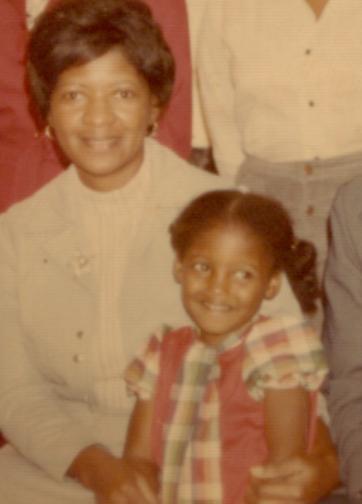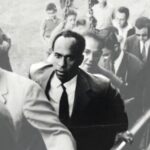I remember sitting in my student apartment in New York City, nearly 20 years ago now, writing the first words of yet another poem about my mother. I was grieving, having only just lost her a year and a half before. All of my poems at that time were about my mother, but this poem would be different. In this poem, I told myself, I’d break through into something powerful and real, something that would help me to expel all of the bottled up devastation, something that would foster a sense of connection—more than connection, of contact—with her, despite the incomprehensible distance that separated us.
How could I get words to do something so unlikely, so impossible? I had spent so much time writing about my mother as gone, as a ghost returning to me in dreams, as an absence and a loss, and none of that had gotten me where I wanted to be. So I adopted a different approach. I started from where I was, from the very room in which I sat, and wrote out from that urge. Eventually, I found myself remembering a very small scene from my childhood:
Years ago during a storm,
I knelt before the open side
Of a blue and white miniature house,
Moving the dolls from room to room
While you added kindling to the fire.
It was less than a scene. Merely a snapshot of a memory. There was nothing more to it, no event moving that action forward. The only event in question—my mother’s death—was still more than a decade away. Maybe the story was poignant because of how simple it was: how warm the room, how happily oblivious to life’s darker inevitabilities I seemed in it, safe at my mother’s side playing with my dolls. Maybe it was poignant because of the stark contrast it marked between the then of the scene and the now in which I was writing the poem, a now marked by grief.
A poem is often concerned less with telling a story than it is with perspective, disturbance, the irresistible allure of what sits barely decipherable in the distance. A poem soars over the landscape of memory like a bird of prey. When it sees something living, something with heat and texture and blood in its veins, it dives down and lifts the thing up, disappearing. Then the poem becomes something else: the tree to which the bird returns; the clouds overhead, roving in wind; the ground from which a figure squints, looking up.
In my poem, just then, I was perhaps the prey that would soon be caught up and lifted off by what swooped down from overhead like a shadow. But that wasn’t the story I wanted to tell, at least not all the way through. I didn’t want to continue into the future that would take my mother from me, and so I let language—or, rather, the way that memory operates within language—replace my mother and me as the poem’s subject:
It is true that death resists the present tense.
But memory does death one better. Ignores the future.
As a writer of poems, I’ve reveled in the shifting vantages through which experience can be examined. It has given me the ability to sink very deeply and hungrily into a single image, to take from it what it seems to offer, and then to depart, in pursuit of other points of view that are far-flung, intimate and subjective—and that might work together to invoke or illuminate… well, something. Often, that something is difficult to fit into words. Often it is a feeling, a pang, a visceral certainty that defies easy classification. In my poem, which eventually came to be part of an elegiac sequence called “Joy,” the pang was derived from the blatant impossibility suggested by the poem’s closure:
We sat in that room until the wood was spent.
We never left the room.
The wood was never spent.
The large unity we think of as a poem is actually many small things happening one after another. Often it is the difference and the distance between disparate objects, events or possibilities in a poem that accounts for the poem’s unsettling or exhilarating effect.
But if a poem conjures a place or an event by moving quickly through space and time, by adopting shifting perspectives, by speaking indirectly, by using images possessed of their own visceral power, then prose might do something of the reverse, building a sense of place or time by adopting a more steady view, by holding still until these many different and disparate details and feelings accrue. If this is true at least some of the time, perhaps on such occasions it might also be true to characterize poetry as insistent in its vision: departing and returning, picking and choosing, casting and gathering. On those occasions, perhaps it is equally true to describe prose as persistent in its manner of vision. Perhaps it is the long lingering gaze that allows detail and insight to gradually emerge.
Years later, in returning to the subject of my mother in my memoir, Ordinary Light, I was drawn to the genre of prose because I sought a more all-encompassing and continuous view of material that I had lived through episodically, taking in one thing at a time, missing a great deal of the central action, or catching it, but failing to ask the right things of it in the moment. I wanted to take in my lifetime with her slowly, to dwell upon it until I had the ability to say what I had never known was in need of being said, or to reclaim what I needed to take away with me from that time.
My first steps into the world of my memoir were small ones. Just as I did in the poem “Joy,” I began by marking out some of the scenes I remembered vividly from my childhood. Small scenes, like being kicked by a calf on a visit to a farm, or sitting in on one of my mother’s luncheons with a friend, or using an incubator to hatch quail eggs with my father. At first, my instincts were still set to the demands of a poem; instead of narrating stories, I wanted to populate my scenes with concrete images, let them do the work, and then high tail it out of there. But the prose was stubborn. Sit still, it told me. What did you see? What did you say? What did everyone say? And once I had written that, the prose asked me, And what did you fail to say? Why? Why did you think that was true then, and what do you think is true now? As my scenes began to accumulate, the prose began to ask me what I thought about the connections between scenes.
Prose, I realized, is nosey. It wants to know all manner of things a poem would, sensing, never ask: What do you think was the effect of that event? What did you come away from it thinking? What did you do? What was the world doing while this was happening? What did you and everyone else eat?
Eventually, my nosey prose began to alert me to insights. Eventually, my nosey prose began to deliver to me the very person I sought: my living, breathing, playful, generous, loving mother. My nosey prose delivered her to me so wholly it also alerted me to the things I never knew, and would now never know, about her. My poems delivered similar things, of course, but differently. My poems conjured my mother in the way a whiff of perfume might conjure someone from a very long time ago: viscerally, vividly, but only briefly. The prose told me I could have her for as long as I wanted—if only I would use my words, if only I would keep talking.
But what governs what you say, and what you say after what you have just said? In a poem, the thing that tells the poet when to look away from the poem’s central action and where to re-situate her gaze seems, to me, to be the unconscious mind. It’s there, and not in the conscious mind, that the strange and illuminating connections between places, events, objects and ideas might be said to originate—or where the understanding of their relevance to one another resides. Where prose is concerned, I suspect that the process of “keeping talking”—the willingness not to stop and wrap things up where they appear to end, but rather to keep going, to keep threading things together until a narrative unity announces itself—facilitates the collaboration between the writer and her unconscious.
There was something exhilarating—and devastating—in being led by the prose to say, for instance:
Did [my mother] feel as free—and at times as alone—as I sometimes did during that first autumn on my own, striving to carve out my space in a world where it seemed that so little of what I’d spent my short life learning and believing actually mattered? And was there a sense of conflict for her, as there was for me, in breaking free from the place and people who had raised her? A sense of guilt in choosing the new life as preferable to the old? Because my mother had done it—had laid down the old life like a too-small garment and stepped eagerly into each layer of the new—I told myself I wasn’t completely defying her when, one by one, I let my own wishes and desires replace the values she sought to instill in me. But if I really felt that way, why didn’t I ever tell her so?
There was also something satisfying and heartbreakingly unresolvable about arriving at the realizations and connections that shaped my prose, because the only absolutes I could trust were themselves highly subjective. No matter how clear and present these scenes from my life might have felt, I wasn’t looking at film takes or photographs of another time, but rather glimpsing that time through the lens of memory. A lens that is warped, riddled with dark spots, supremely susceptible to error. A lens shaped by habit, guided even only imperceptibly by the desire to see or not to see, a lens that is an extension of, in this case, me. A lens, I decided to admit, that it is as much a character in the story as any of the real people talking and eating and moving their way through scenes—which is why memoir, for all its sincere interest in the truth, is something we read as literature and not history.
Just before publication date, looking at the finished copy of Ordinary Light, I realized that it ought to have been in sixth grade, not fifth where I had anchored a pivotal moment of adolescent transition. How could I have forgotten? Was it worth trying to petition for a revision to subsequent printings? That’s memory for you. Telling you where things belong rather than where they might actually have occurred. Memory, working in conjunction with the unconscious, telling me that I became a woman at the same time that I became aware of some of the urgencies governing my mother’s life as a woman. I became a woman in empathy, though the real event was still another quick year off. I don’t think the difference in facts amounts to much, but there is something that telling those two stories together helped me to recognize. Memory, making sense of the past by fashioning the past into something that finally makes sense.
There is one more distinction between the poem and prose that has been weighing upon my mind, and it has to do with how we are situated to hear these two genres distinctly. Poems speak to their readers. They say, Come here, let me tell you what it was like. But they tell it in a way that privileges subjectivity, that pulls things from the usual ways in which we think of them, that says, This thing was so unlike itself that in order to understand it you must walk all the way over to this other place, where the feelings in question are utterly different. In order to understand what I have seen or done or felt, you have to contort or enlarge your sense of ordinary experience. That transaction is signaled by the very artifice of the poem, by the fact that it is a speaker (and not necessarily the poet) doing the talking, that language operates in strange ways, that sense has been replaced with something distinct from ordinary sense.
But the transaction in prose announces itself differently. After all, prose is the language we (ostensibly) live in. It isn’t dancing across the page, or shying away from the right margin, or bending itself into strange sounds that exert an altered or altering energy. When prose surprises us, I believe it is because we have approached it thinking we didn’t need to change our stance or adjust our ears. When prose surprises us, it is especially surprising—especially when the material is familiar and when what it reveals is plain or patently true. My prose surprised me when it laid things bare before me, when it urged me to say:
Silence feeds pain, allows it to fester and thrive. What starves pain, what forces it to release its grip, is speech, the voice upon which rides the story, This is what happened; this is what I have refused to let claim me. Suddenly, I understood, though no one had taught me. I understood, because what I wanted, what I needed more than anything, was someone to listen to my story, someone to help me starve even this pain—this small, private pain—so that I could stand up and figure out how to go on.
The things that have happened in my life and the people with whom I’ve lived them are real, but telling the story of them in language makes them public. Reading a chapter about my grandmother at a recent event, and speaking to audience members afterward, revealed to me that the real person I knew and struggled with as a member of my family had, in just a matter of the ten or twenty minutes it took to read aloud a chapter, become a character that other people came to recognize and claim. I was startled hearing people call her by name, tell me about what she made them think, speaking to me as if they knew her, had known her all their lives. She seemed to become less mine, and, I worried, less herself. Maybe she did. But perhaps she also became a kind of bridge that allowed my story to offer readers glimpses of their own stories, their own real and singular lives.
There are times, even as someone whose work is rooted in language, when I think that everything words set out to do is unlikely, quite probably impossible. There are times when I think that no matter what we set out to do, we fail. Where is my mother? Still gone. Permanently and irreparably gone. And yet, the path we as writers follow, and the strange tasks we set up for ourselves, the goals that litter our trail like crumbs, do something vivid and wildly affirming. They lift us out of the real, out of the fixed and furious forward movement of time, at times they even lead us out of the very selves we have set out to interrogate and claim. And they allow us to wander in the strange terrain of possibility, where what will guide or save or console us can be the shadows cast from what sails past overhead, or the rustling in those shrubs just off the path, or what follows us silently, keeping pace, not yet interested in making its presence felt.
Track K. Smith’s memoir, Ordinary Light, is out now from Knopf.





















